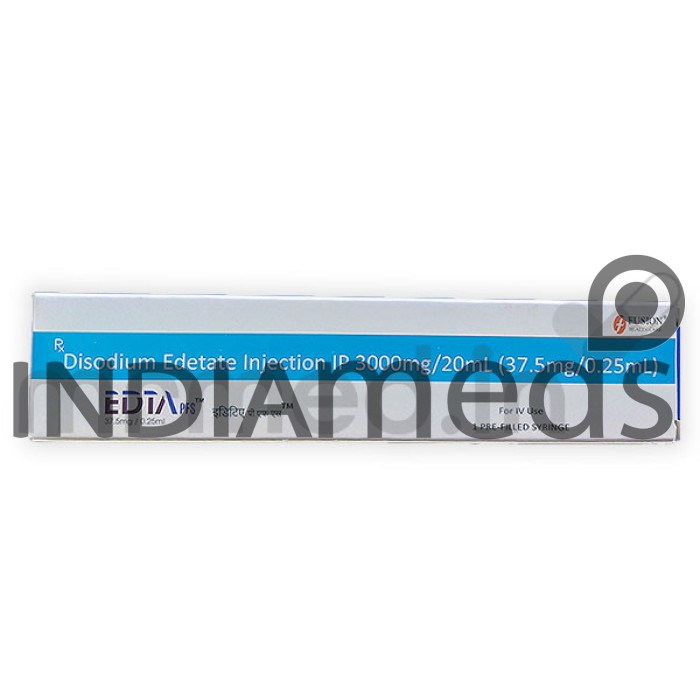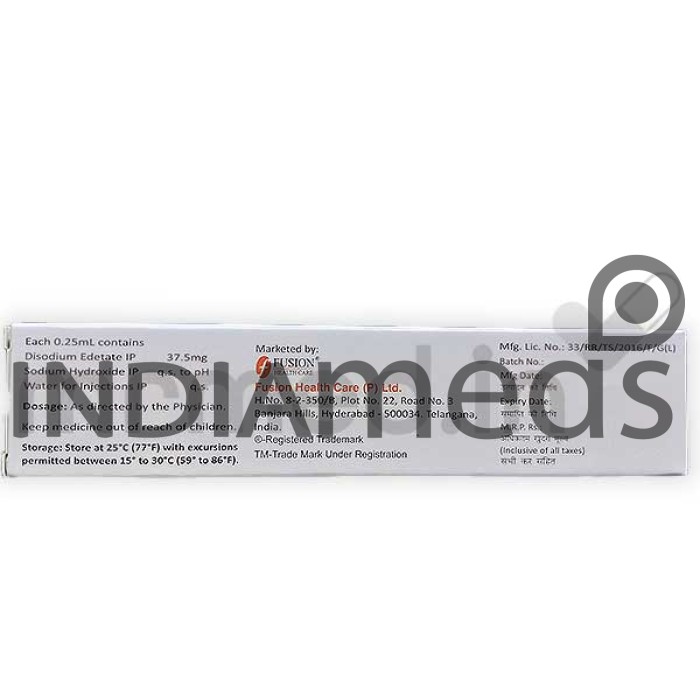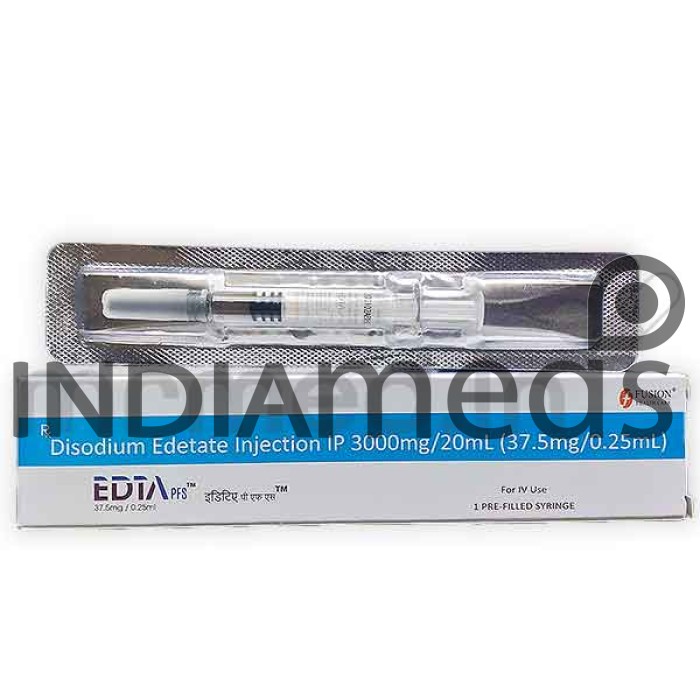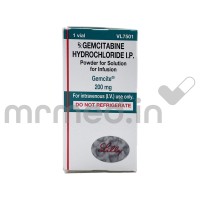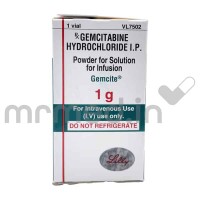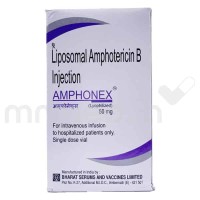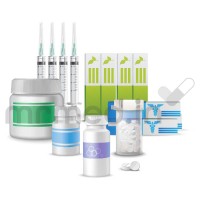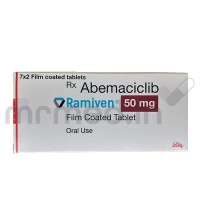EDTA 37.5mg injection contains active components such as Disodium edetate. It has historically been used as a treatment for lead poisoning. It can be used to manage certain conditions where excess calcium in the blood is a concern, such as hypercalcemia, or to prevent calcification in some medical procedures. It can sometimes be added to blood samples to prevent clotting. It is sometimes used in laboratory settings for this purpose. It is used as a preservative in some medications and personal care products to help maintain stability and extend shelf life. It's important to note that it should only be used under the guidance of a healthcare professional, as it can have potential side effects and should be administered carefully.
Individuals with a known allergy or hypersensitivity to EDTA 37.5mg injection or any of its components should not use products containing EDTA. Patients with severe renal (kidney) impairment may not be able to efficiently eliminate this medication from their bodies, leading to potential toxicity. In such cases, the use of It should be avoided or carefully monitored. It should be used cautiously or avoided in individuals with a pre-existing risk of hypocalcemia. Its use should be approached with caution in patients with cardiovascular diseases. The use of this medication in children should be carefully considered, and dosage should be determined by a healthcare provider based on the specific medical condition and age of the child. The use of EDTA 37.5mg injection in older adults should be carefully considered and monitored by a healthcare provider, especially if there are concerns about kidney function. It's essential to weigh the potential benefits against the risks.
- Chelation therapy
- Anticoagulant use
- Preservative
- Calcium chelation
- Research and laboratory applications
- Dental care
- Water treatment
- Cosmetic products
Therapeutic Effects of Edta 37.5mg Injection
Pregnancy
EDTA 37.5mg injection's safety during pregnancy has not been well studied. If you are pregnant or planning to become pregnant, consult your doctor before using this medication.
Breast Feeding
EDTA 37.5mg injection's effects on nursing infants is unclear. Consult a doctor if you are a breastfeeding woman before taking this medication.
Lungs
If you have any lung conditions, consult a doctor before starting EDTA 37.5mg injection.
Liver
The use of EDTA 37.5mg injection may require caution in individuals with liver conditions, as the liver plays a role in metabolizing medications. Consult with a healthcare provider for personalized advice if you have liver concerns.
Alcohol
It is generally unsafe to take alcohol while taking EDTA 37.5mg injection, as alcohol can interact with this medication and may lead to adverse effects or reduced effectiveness.
Driving
The use of EDTA 37.5mg injection is not typically associated with impaired driving. However, individuals should always follow their healthcare provider's recommendations and monitor their own response to the medication.
Serious
- Allergic reactions
- Kidney damage
- Low blood pressure
- Electrolyte imbalances
- Bone marrow suppression
Common
- Pain or discomfort at the injection site
- Transient decrease in blood calcium levels
The duration and dosage of this therapy should follow healthcare provider recommendations, and concurrent medications, allergies, and pre-existing conditions should be disclosed. Patient education, regular follow-up appointments, and emergency preparedness are also key elements of safe its use. Consulting with a healthcare provider, the safe and effective use of this medication can be maintained in various medical settings.
While EDTA 37.5mg injection is primarily used for heavy metal poisoning and chelation therapy, it is not a standard treatment for other medical conditions. Its use should be based on specific medical indications and under the guidance of a healthcare provider.
While there are no specific dietary restrictions associated with EDTA 37.5mg injection, patients are advised to maintain a balanced diet and stay hydrated during chelation therapy. Consult with a healthcare provider for personalized dietary recommendations.
Healthcare professionals typically administer chelation therapy with EDTA 37.5mg injection in a clinical setting. Self-administration at home is not recommended due to the need for medical supervision and monitoring.
EDTA 37.5mg injection is primarily available as a prescription medication, especially for chelation therapy. It is not typically available over-the-counter and should only be used under medical supervision.
Long-term effects and risks of EDTA 37.5mg injection depend on the individual's health, the specific metal exposure, and the therapy management. Healthcare providers should carefully assess and monitor patients to minimize potential risks.
The time it takes to see improvements during chelation therapy with EDTA can vary depending on the individual and the severity of heavy metal poisoning. Some patients may experience gradual improvements over several sessions, while others may respond more quickly.
Molecule name: Disodium edetate | Therapeutic class: Chelating Agents |
Pharmacological class: Heavy Metal Chelators | Indications: 1. Chelation therapy 2. Anticoagulant use 3. Preservative 4. Calcium chelation 5. Research and laboratory applications 6. Dental care 7. Water treatment 8. Cosmetic products |


